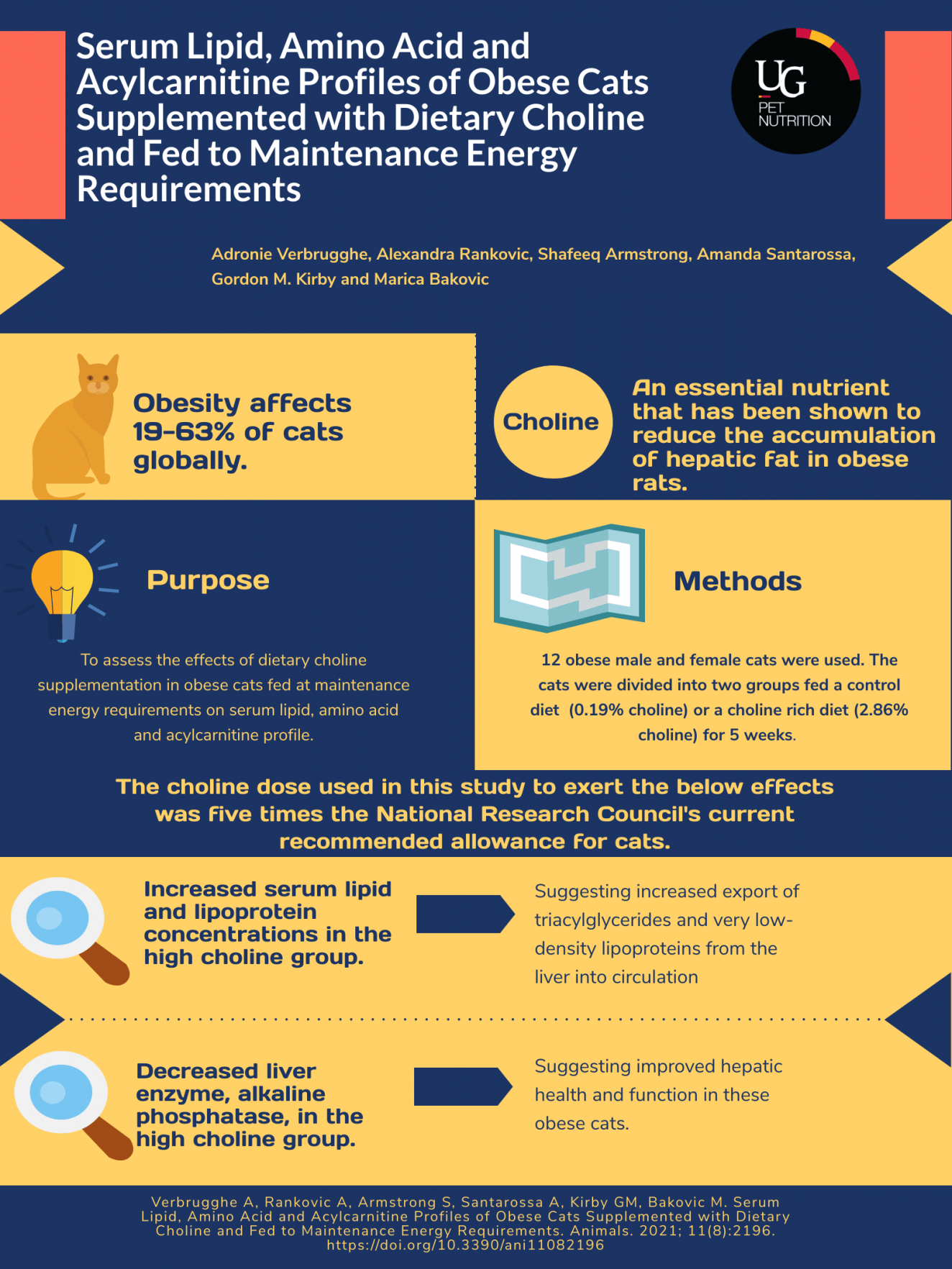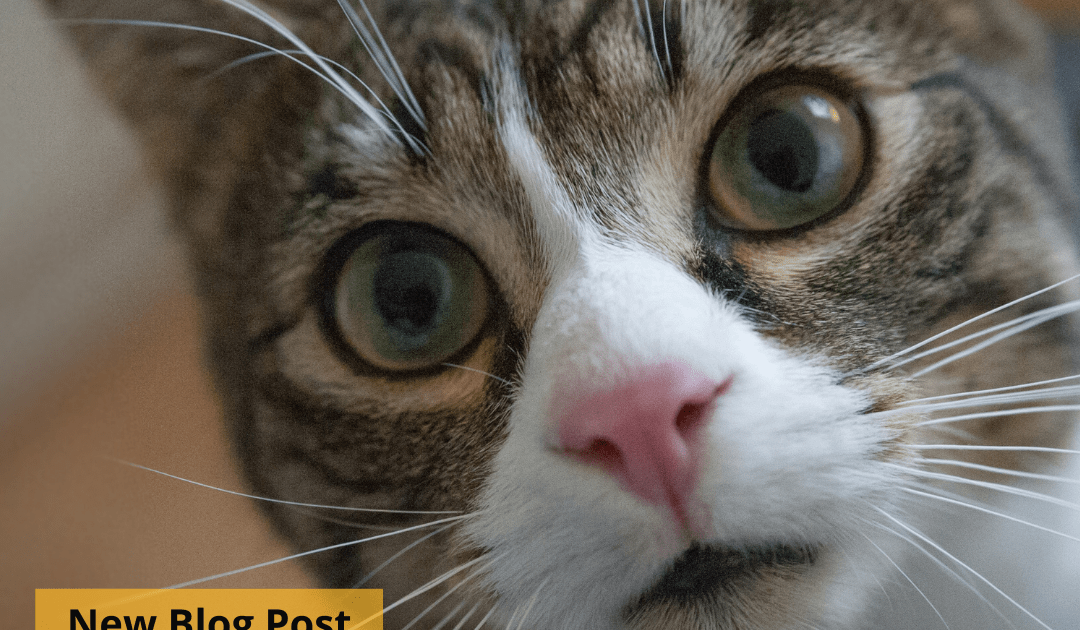Bloodwork from supplemented cats shows promise for liver health and obesity treatment
Congratulations to Alex Rankovic, MSc, PhD (Candidate) for her recent publication in the journal, Animals, Serum Lipid, Amino Acid and Acylcarnitine Profiles of Obese Cats Supplemented with Dietary Choline and Fed to Maintenance Energy Requirements.

A previous blog post, Cut the Fat But Support the Cat, reviewed Dr. Caitlin Grant’s investigation of essential nutrient intake in overweight cats when fed a veterinary weight loss diet during an episode of energy restriction to induce weight loss. Choline was demonstrated to be a limiting nutrient of interest.
Choline is an essential nutrient, that cannot be produced by the body in sufficient quantities to meet the body’s needs, and must therefore be obtained, or supplemented, through the diet. Choline plays an important role in fat metabolism. In other species, choline has been shown to reduce the buildup of fat in the liver.
Feline hepatic lipidosis, or fatty liver disease, is a painful, potentially life-threatening condition, resulting in liver damage or failure. As the name suggests, it occurs when excess fat accumulates in the liver and is most common in obese cats. A predisposing factor to feline hepatic lipidosis is energy restriction and weight loss through periods of inappetence, anorexia, or starvation. Despite the health consequences of obesity, avoidance of hepatic lipidosis often leads veterinary teams to be more cautious when planning and executing veterinary weight loss plans for cats, meaning that a slower weight loss rate is often preferred for cats compared to other species such as dogs.
Obese cats in this study were supplemented with high levels of dietary choline while eating a diet formulated for adult maintenance. Weight loss was not the goal in this study. Cats maintained their obese condition, yet they showed improved liver values on their bloodwork when supplemented with choline. These cats also had increased levels of circulating fats and lipoproteins, which suggest an improved ability for the body to move fat out of the liver. Increased intake of dietary choline may improve the safety and efficacy of weight loss in the treatment and care of obese cats.
The presented research project was supported by a Natural Sciences and Engineering Research Council of Canada Engage Grant in partnership with Elmira Pet Products.
The OVC Pet Nutrition Team continues to investigate the role of choline for healthy weight in pets. Stay tuned for more information!
Written by: Shoshana Verton-Shaw, RVT, VTS (Nutrition)
Edited by: Alex Rankovic, MSc, PhD (Candidate)
Dr. Adronie Verbrugghe, DVM, PhD, EBVS Specialist in Veterinary and Comparative Nutrition® (Dip ECVCN)
Infographic by: Cristian Mastrangelo, OVC Pet Nutrition Summer Student


